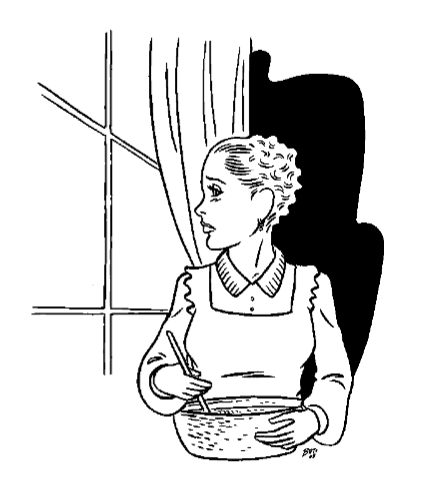As a kid back in the Pleistocene, I was periodically dumped in front of the TV after school, and that meant either talk shows, soaps, or movies, and every so often I’d tumble out of a run of rubber-suited monster pictures—Reptilicus, Gorgo, Night of the Blood Beast—into another and equally bizarre afternoon genre: the woman’s picture, or “weepie,” as Variety called them.
We recognize the territory when we channel-surf into it: Lana Turner in that enameled 50’s technicolor, facing away from some knit-browed and forgettable male; Barbara Stanwyck looking star-crossed and miserable as she peers over a fence in the rain at her own daughter’s wedding; Joan Fontaine just staying put, her whole gestalt a perfect figure for submissiveness. An overstated string section to help us register the heartache.
The stories trundled through decades of forbearance: slow-moving, mile-long freight trains of self-denial. All those women gave up what they most wanted for somebody else’s sake. Which meant that their movies centered on events that didn’t happen: the singing career that wasn’t begun, the wedding that didn’t occur, the meeting in the park that never came off, the key phrase left unspoken. Which made for movies obsessed with the life not lived: a weird negative space of the never-was and the might-have-been. Even the titles gave it away: Written on the Wind, All I Desire, Since You Went Away, There’s Always Tomorrow, Imitation of Life.
The weepie is back in the news because of the attention Todd Haynes’ Far From Heaven, with its four Academy Award nominations and its critical support on both coasts, has received. While Heaven is not as jaw-droppingly mechanical a project as Gus Van Sant’s shot-for-shot remake of Psycho a few years ago, the debate around it has centered on just what to make of the extremity of its stylistic self-consciousness. It’s either a reconstruction of or a paean to Douglas Sirk’s mid-century melodramas, particularly All That Heaven Allows. Sirk was the great American master of the astoundingly overwrought and the weirdly bottled up, when it came to suburban white emotions.
Part of the reason we gape today at such movies is because of the way they enshrine what seems to us an antiquated masochistic selflessness, if not self-eradication. They all seem to feature a woman who wants in some way to express herself, to make herself known, plopped down in a story that demonstrates the impossibility of realizing that desire. Again, go back to the titles: Letter from an Unknown Woman, The Old Maid, Madame X.
All of that should sound...
You have reached your article limit
Sign up for a digital subscription and continue reading all new issues, plus our entire archives, for just $1.50/month.
Already a subscriber? Sign in





